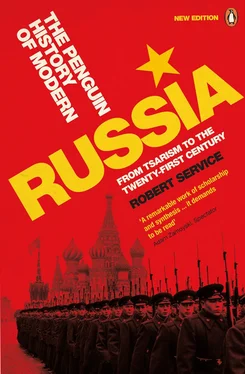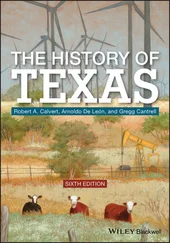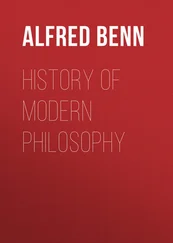Gerashchenko, Viktor, 516
German Communist Party, 107, 126, 158, 171, 178, 187
German Democratic Republic (East Germany): established, 311; emigration to West, 374; recognized by West Germany, 389; Gorbachëv on, 463; citizens seek asylum in Austria, 483
German Federal Republic (West Germany), 337, 389
German Social Democratic Party: advocates central planning, 63; opposes communist ‘March Action’ in (1921), 126, 158–9; propaganda, 140; Comintern declares enmity for, 178; communists campaign against, 187
Germany: as threat to Imperial Russia, 1; trade with Russia, 3; imperial Russian rivalry with, 24–5; naval power, 25; and outbreak of World War I, 26–7, 34, 53; returns Lenin to Russia, 47; in World War I, 49, 107; and 1917/18 peace agreement with Russia, 75–8, 80; and October Revolution, 75; unrest in, 81; 1918 territorial acquisitions, 84; and civil war in Russia, 102; Spartakist rising (1919), 112; 1918 defeat, 117; Soviet negotiations and agreement with, 158–9; rise of Nazism, 171; Stalin’s estimate of, 187; nationalism, 206; signs Anti-Comintern Pact, 230; and outbreak of World War II, 255–7; imports Soviet strategic materials, 259; invades and campaigns in USSR (1941), 260–67; defence of homeland, 270–71; World War II atrocities, 283, 286, 288–9; occupation regime, 286–90, 295–6; Soviet collaborators with, 287; industrial plant transferred to USSR, 307; partition, 308; economic recovery, 322
Gestapo, 223, 286
Ghana, 389
Gierek, Eduard, 386
Gil, Stepan, 107
glasnost, 448–9, 452, 459–60, 464, 466
Glasnost (journal), 480
Glavlit (Main Administration for Affairs of Literature and Publishing Houses), 137, 324, 366, 448
Goethe, J.W. von, 85
gold, 4, 159, 177
Gomułka, Władisław, 231, 311, 342–3, 386
Gorbachëv, Mikhail: abolishes Glavlit, 137; Marxist-Leninism, 370; reform programme, 397, 438–44, 446, 448–52, 454–5, 459–62, 466, 468, 479, 485, 490, 494; experiments with ‘links’ system, 402; background and career, 404–5, 435–7, 456; Andropov employs, 430–31, 433, 437; status and influence, 434; appointed General Secretary, 435, 438; formulation of ideas, 437–8, 443, 451, 454–5; visits abroad, 437, 440, 463; political appointments, 438–9, 456; character and style, 439–40; foreign policy and international relations, 442–5, 451, 455, 463–5; and defence commitments, 443–4; negotiates with Reagan, 444, 463; and Chernobyl disaster, 445–6; and collapse of USSR, 447, 507; and public debate (glasnost), 448–9; relations with Yeltsin, 453, 503, 512; speech on 70th anniversary of October revolution, 453–4; foreign policy, 455, 463–5; and nationalities question, 455–7; at 19th Party Conference, 461–2; replaces Gromyko as Chairman of Supreme Soviet, 463; arms reduction, 465–6; popularity in West, 465–6, 496; innocence, 466; mismanagement, 468; and Armenian earthquake, 469; and economic crisis, 470–71, 491–3, 495; accepts 1989 election results, 473; resistance and opposition to reforms, 473–6, 480–81, 485, 488, 493–5; chairs Congress of People’s Deputies, 474–5; popularity in USSR, 477, 479; and independence movements in republics, 481; and collapse of communism in Eastern Europe, 483–4; contradictions in policy, 485–6; remains in Party, 486–7, 491; proposes socialist liberation, 487; at 18th Party Congress, 490–91; attempted coup against (1991), 491, 496–500, 502, 530; loses popularity, 491, 495–6, 499–500; maintains unity of USSR, 494; works with Yeltsin, 494; resignation, 495, 505, 507; Perestroika (book), 453–4, 465
Gorbachëva, Raisa, 436, 438, 453, 455–6, 469, 486, 498, 502
Gordov, General Vasili N., 299
Gorki (city), 412, 414
Gorki, Maksim, 137, 191, 206, 248
Gosagroprom see State Committee for the Agro-Industrial Complex
Gosizdat (state publisher), 138
Gosplan see State Planning Commission
Gottwald, Clement, 307
Grachëv, Pavel, 500, 524, 533
grain: pre-World War I production, 5; World War I regulation of trade, 31, 52, 79–80; production, 78–9, 124; state procurement of, 104, 109, 118, 164, 170, 172–4, 182–3, 194, 305; distribution, 108–9; hoarding by peasants, 109–10; and tax in kind, 124–5; fall in world prices, 147, 159, 177; marketing by peasants, 147; exports under NEP, 155; exports under First Five-Year Plan, 177; quotas, 184; post-World War II production, 328; production under Khrushchëv, 350; production under Brezhnev, 401; purchased abroad, 401; price controls lifted (1993), 525; see also harvests
Great Depression (1929), 170, 177
Great Terror (1937–8) see terror
Great War (1914–18) see World War I
Grebenshchikov, Boris, 543
Greece, 271, 306
Greek Catholic (Uniate) Church, 369
Grigoryants, Sergei, 480
Grishin, Viktor, 428, 434–5, 442
Groman, Vladimir, 145
Gromov, General Boris, 497
Gromyko, Andrei, 354, 404, 426, 428, 435, 438, 462–3
Grossman, Vasili, 289; Forever Flowing , 478; Life and Fate , 416
Group of Seven: Gorbachëv appeals to, 496
Grozny (Chechnya), 533, 538, 546
Guchkov, Alexander, 16, 30, 33, 36
Gulag (and forced labour), 179, 191, 210, 223–5, 252, 277, 279–80, 301, 328–9, 335, 342, 451–2; wartime deaths in, 278; Khrushchëv releases inmates, 345, 358–9, 370
Gusinski, Vladimir, 549, 550, 561
Gypsies, 222, 286
Habsburg dynasty, 26–8
harvests: 1917 shortage, 78–9; 1920 decline, 124; high 1926–7 level, 164; 1928–30 average, 181; 1936 fall, 218; low 1952 level, 304; 1954–55 improvements, 337–8; and Khrushchëv’s reforms, 337–8, 350, 352, 375, 385; 1963 low level, 375; 1964 improvement, 385
Havel, Vacláv, 483
health and medical care, 417–18
Helsinki Final Act (1975), 400, 413
Herzegovina: Austria annexes (1908), 24
Herzen, Alexander, 17
Hindenburg, Field Marshal Paul von Beneckendorff und von, 75
historiography of Russia since 1900: xxv–xxxii
history: writing of official Soviet, 206, 316, 368, 419, 479
Hitler, Adolf: Comintern disregards, 178; Stalin misjudges, 187; and ‘Final Solution’, 202, 222–3; rise to power, 206; occupies Rhineland, 230; annexes Austria and Sudetenland, 231; totalitarianism, 253; and outbreak of World War II, 255–6; and pact with USSR (1939), 256; and invasion of USSR, 259, 265–6, 573; and campaign in USSR, 262, 266–7; death, 272, 293; mistrusts Volga Germans, 277; and Soviet popular resistance, 286; and German atrocities in Russia, 288, 290; see also Germany; Nazi party
Hohenzollern dynasty, 26
Holland: Germans occupy, 258
homelessness, 517–18; see also housing
Honecker, Erich, 464, 483
honours and awards, 236–7
housing, 192, 357, 359, 418, 517–18
Hrushevskyi, Mihaylo, 132
Human Rights Committee, 382
Hungary: 1919 Soviet Republic, 120; post-World War II settlement, 271, 307; supplies contingents for German army, 286; and formation of Cominform, 308; unrest in, 336; 1956 rising and suppression, 343–4, 353, 387, 443, 454; reforms under Ka´da´r, 385–6; and Gorbachëv’s reforms, 464; allows East German immigration and transit, 483; joins NATO, 537
Husák, Gustáv, 387, 464, 483
hydrogen bomb, 336, 353; see also nuclear weapons
identity booklets (‘internal passports’), 207–8
ideological authoritarianism, 99, 117
Ignatov, Nikolai, 377
illiteracy see literacy
IMF, 531, 535
Imperial Academy, 8
Imperial Economic Society, 7
imperialism, 128–9
India, 129, 388, 538
‘Industrial Party’, 185
industrial relations see strikes
industry and industrialization: and military strength, 3–4; pre-World War I development, 4–5, 7, 22; labour, 7; growth in World War I, 28–9, 31; Bolshevik policy on, 79–80; World War I production fall, 79; nationalization of, 92, 95, 110; Lenin proposes capitalist syndicates for, 95; post-World War I production decline, 109, 124; small-scale manufacturing under NEP, 126–7; Trotski’s plans for, 151; recovery under NEP, 155, 162, 186; planning campaigns, 160; under Stalin, 175–6, 194, 234, 275–6; under Five-Year Plans, 182, 186, 194; Stakhanovism in, 217; in World War II, 266; regional policy, 302; capital goods, 303–4, 329; Khrushchëv’s policy on, 351; production increases under Brezhnev, 385; capacity (1970s), 397–8; 1979 reforms, 408; statistics on (1966–80), 408; Gorbachëv’s proposed reforms, 440–41; inefficiency, 467–8; increased output (1983–7), 469; production falls under Yeltsin, 516; privatization, 531, 534, 541–2; see also consumer goods
Читать дальше












